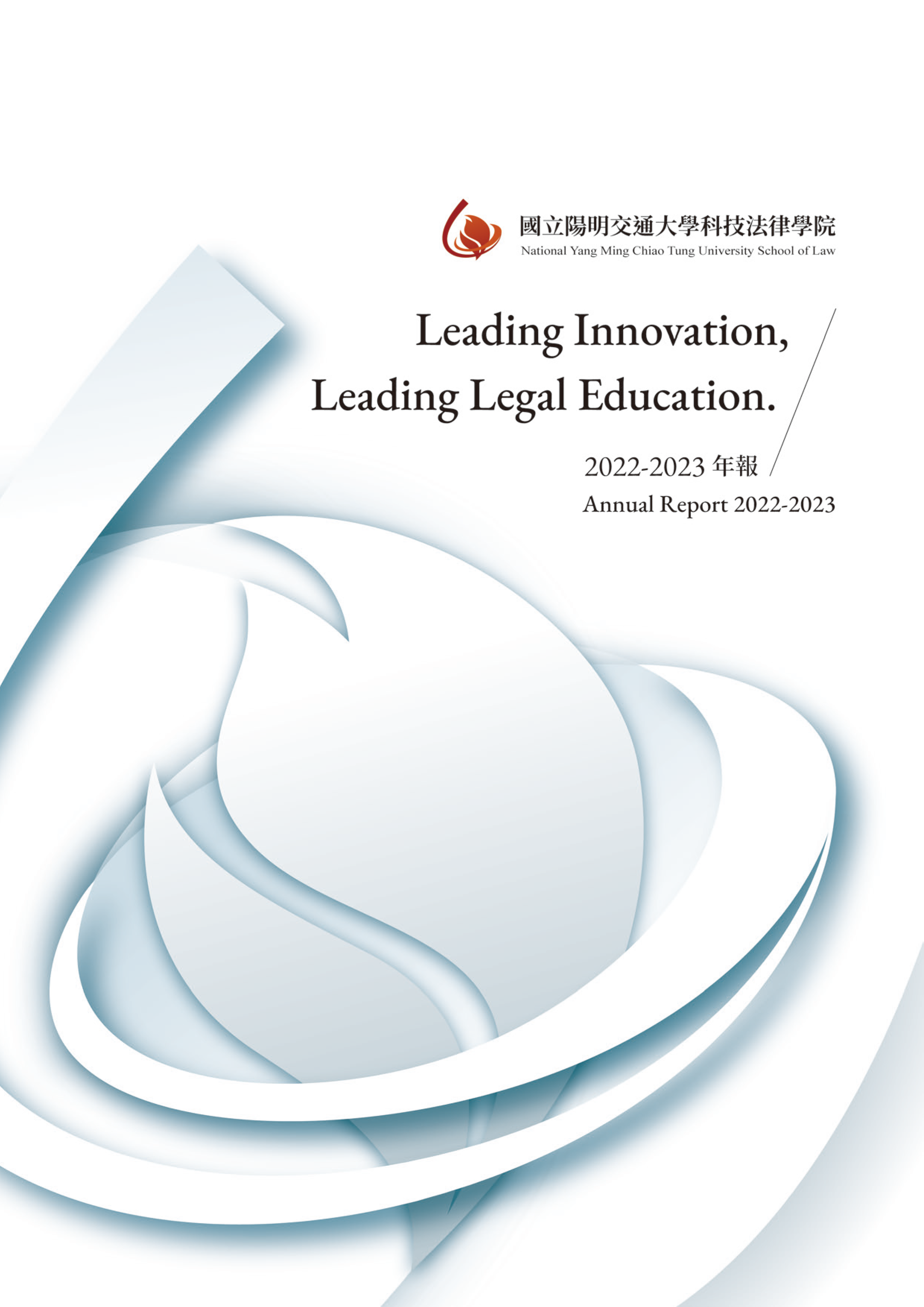Home » Life at NYCU Law – Student News & Events
Congratulations to our master's student Zhu Xi-lin and graduate students Lee Szu-Yi and Hsiao Yi-Chan for passing the New York State Bar Exam!
Home » Life at NYCU Law – Student News & Events
The first issue of the 2022-2023 Annual Report has been released! You are cordially invited to explore NYCU Law's development and activities through the Annual Report.

Home » Life at NYCU Law – Student News & Events
Congratulations to NYCU Law student Jing-Jie Chen on being awarded a scholarship by the Ministry of Education for overseas study. His research area is in Geriatric Medicine and Long-Term Care.
Home » Life at NYCU Law – Student News & Events
The graduate thesis by Wen-Chi Chang, NYCU School of Law alumni, titled "A Study on Legislation of Mandatory Human Rights Due Diligence Prohibiting Forced Labor: Focusing on EU Proposal for a Directive on Corporate Sustainability Due Diligence,” supervised by Associate Professor Yu-fan Chiu and Bonny Ling, won the 2023 International Law Thesis Award.
Home » Life at NYCU Law – Student News & Events
The 2023 National Conference on Technology Law concluded successfully on November 29th and 30th. This year's conference focused on key issues such as national security, digital governance, international economic and technological regulations, intellectual property strategies, and deployment. Distinguished representatives from government, industry, and academia were invited to provide in-depth analyses on various topics, attracting over 400 participants. The expectation is for ongoing innovation to collaboratively build a more competitive and progressive nation and industry.
Media report:
Home » Life at NYCU Law – Student News & Events
The 2023 Asian Law Schools Association (ALSA) Conference was successfully held at the National Yang Ming Chiao Tung University Hsinchu campus on December 2nd and 3rd. Over a hundred scholars from more than twenty countries gathered to exchange ideas on coping with the societal impacts of current technological innovations. The conference covered a range of critical topics, including human-robot interaction, trustworthy AI, virtual currencies, internet governance, governance of automated technologies, data sharing and governance, AI applications in the judiciary, digital platforms, intellectual property innovation, digital labor rights, geopolitical issues, biomedical innovation technology, digital technology and global health law, and the legal education reforms facilitated by AI.
The aim is to accelerate interdisciplinary exchanges in technology law, fostering the formation of a distinct Asian-centric community in technology law. This initiative seeks to shape legal policies from an Asian perspective to address the industrial impacts and societal changes brought about by innovative technologies.
Media report:
This website uses cookies to ensure you get the best experience on our website. Continued use of our website constitutes consent to their use.